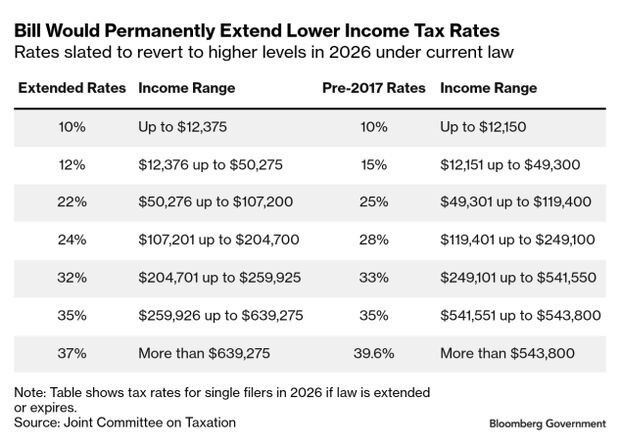The Effects of the House Reconciliation Package on ASA Members
This week, the House approved their reconciliation package, which included the following:
- Increase the debt limit by $4 trillion.
- Provide funding to boost national security procurement, support border and immigration enforcement, and improve air traffic control technology.
- Temporarily increase the child tax credit and permanently hike employer child care credits.
- Expedite permitting for certain energy projects and mandate new lease sales of federal land for oil and gas drilling.
- Impose new annual fees on electric and hybrid vehicle owners.
- Eliminate clean energy and environmental programs from Democrats’ 2022 tax and climate law (Public Law 117-169).
- Rein in pharmacy benefit manager practices in Medicare and Medicaid and expand uses of health savings accounts.
- Reduce funding for the Consumer Financial Protection Bureau and other financial agencies.
- Require most federal employees to contribute more money to their retirement accounts.
The following provisions are relevant to ASA members:
- Making 199A Qualified Business Income Deduction Permanent
- A key objective this year has been to establish Section 199A tax deduction permanently. Section 199A was created in the Tax Cuts and Jobs Act of 2017 and revised in the Consolidated Appropriations Act of 2018 to better align with the previous Section 199 deduction. The provision allows up to a 20 percent deduction on qualified business income for certain pass-through entities, enabling subcontractors to retain part of their earnings and promote reinvestment in equipment, labor, land, and sustainable practices. The House proposal aims to make this deduction permanent while increasing it from 20% to 23%.
- Estate Tax Relief
- As of 2025, the estate and gift tax exemption is indexed to inflation at $5 million. The projected exemption amount for 2026 is $7.14 million. The proposal suggests a permanent increase of the unified estate and gift tax exemption to an inflation-indexed $15 million per individual and $30 million per couple for taxable years beginning after December 31, 2025. This adjustment reduces the tax liability for succession planning.
- Making the Lower Individual Tax Rates and Expanded Tax Brackets Permanent
- Many businesses operate as pass-through entities, with their profits taxed at individual rates. The proposal extends the lower tax rates and expanded tax brackets from the 2017 Tax Cuts and Jobs Act. This allows businesses to retain more income for reinvestment in their operations. The proposal aims to make the tax rate changes permanent, which were initially set to expire in 2026.
- Maintaining Section 179 Expensing
- Section 179 allows subcontractors to immediately expense qualifying capital investments like machinery and technology. The proposal raises the maximum amount a taxpayer can expense from $1,250,000 with a phaseout threshold of $3,130,000 in tax year 2025 to $2,500,000 and $4,000,000 respectively in tax year 2026.
- Restoring 100% Bonus Depreciation
- The 100% bonus depreciation allows subcontractors to invest in equipment and infrastructure without delayed tax benefits. Under current law, property placed in service on January 1, 2025, gets 40% bonus depreciation, on or after January 1, 2026, gets 20%, and on or after January 1, 2027, gets none. The proposal extends the first-depreciation deduction through 2029, increasing it to 100% for property acquired and placed in service between January 19, 2025, and January 1, 2030.
Untouched Tax Provisions that Constitute a Win for Subcontractors
- Maintaining a Stepped-Up Basis
- The concept of stepped-up basis is crucial for subcontractors, as it can substantially lower the potential estate tax liability when property is transferred to the next generation. The proposal did not address stepped-up basis, therefore, the existing law remains unchanged.
- Maintaining the 20% Capital Gains Rate
- A lower capital gains rate is designed to encourage reinvestment in operations. The bill does not include any provisions that change the current capital gains rate, which remains at 20%.
New Tax Deductions:
- Tip Deduction: The measure proposes a deduction for qualified tips for tax years 2025 through 2028. Employees with earned income exceeding $80,000 ranked in the top 20% by compensation would not be eligible for the deduction. Employees must have a work-eligible Social Security number. Tipped income includes cash tips earned in occupations where tipping is customary, paid voluntarily, as determined by the payer. Tips cannot be earned in specified service trades or businesses such as law, health care, consulting, financial services, athletics, and performing arts.
- Overtime Deduction: Under the current law, overtime pay is included in a taxpayer’s gross income and is subject to federal income and payroll taxes. The proposed bill would create a deduction for overtime compensation for tax years 2025 through 2028, similar to the tipped deduction, but it would exclude qualified tips from overtime pay.
- 529 Plans: The measure would extend the use of 529 plans, which currently cover higher education and K-12 tuition costs, to include homeschooling expenses. Funds could be used for curricular materials, online resources, tutoring, standardized testing fees, and therapies for students with disabilities. Additionally, 529 plans would cover costs associated with vocational and certificate programs

